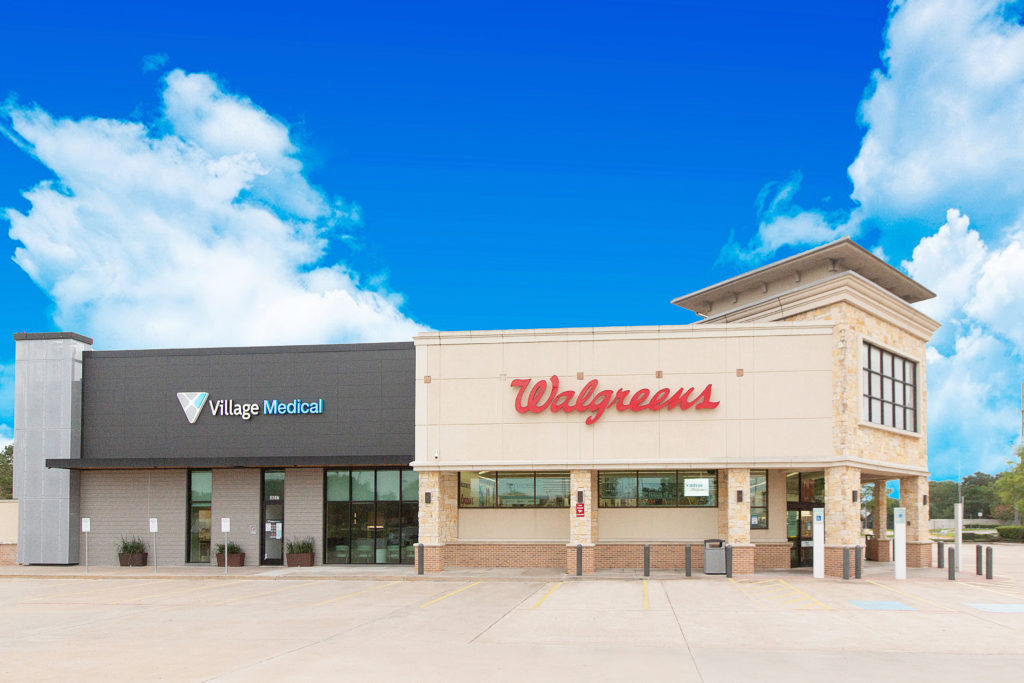 Walgreens shuttering 60 VillageMD locations adjacent to stores in five markets. This follows a second disappointing quarter for Walgreens Boots Alliance [Q3 TTA 28 June] and a fiscal Q4 net loss of $180 million, or 21 cents per share. Their CFO attributed the loss to charges for certain legal and regulatory approvals and settlements (in September, $44 million for their Theranos fling), and one-time charges related to Walgreens’ cost-cutting program. Cuts announced by acting CEO Ginger Graham are $1 billion in 2024. Shares perked up slightly; since the start of 2023, share value has been down 39% for the year before the earnings call on 12 October.
Walgreens shuttering 60 VillageMD locations adjacent to stores in five markets. This follows a second disappointing quarter for Walgreens Boots Alliance [Q3 TTA 28 June] and a fiscal Q4 net loss of $180 million, or 21 cents per share. Their CFO attributed the loss to charges for certain legal and regulatory approvals and settlements (in September, $44 million for their Theranos fling), and one-time charges related to Walgreens’ cost-cutting program. Cuts announced by acting CEO Ginger Graham are $1 billion in 2024. Shares perked up slightly; since the start of 2023, share value has been down 39% for the year before the earnings call on 12 October.
Cutting 27% of co-located VillageMD clinics in ‘non-strategic locations’ is a start. Currently, about 220 are co-located with Walgreens which followed an original plan of about 200 in 2023. However, since WBA bought a 63% share in VillageMD for $5.3 billion in 2021, VillageMD has aggressively expanded. They bought Summit Health last November for $8.9 billion ($3.5 billion from WBA) which included CityMD, acquired Starling Physicians in Connecticut, Family and Internal Medicine Associates in central Kentucky, and Dallas (Texas) Internal Medicine and Geriatric Specialists for a whopping 700 locations [TTA 9 Mar]. Last quarter’s revenue grew by 17%. But expansion can be problematic. Together with the underperformance of CityMD, which came with the acquisition of Summit, and weak retail sales, for WBA this led to an adjusted operating loss of $172 million for the US Healthcare segment. But…there may be more. HISTalk cites an analysis by AI company founder Sergei Polevikov that attributes half of WBA’s projected 2023 $3 billion net loss, its first ever, to…VillageMD. Yet it appears, at least in the press, that Walgreens is staking a great deal on VillageMD, even though it may be a ‘gamble’. FierceHealthcare
As noted last week, WBA has experienced problems from the streets to the suites. Pharmacy workers have walked out, the CEO was given the heave-ho before Labor Day and replaced in record time, the CFO exited in July, and the CIO mysteriously departed at the top of this month. Bad earnings and a depressed retail/pharmacy outlook, without Covid’s ‘black swan’ stimulus, will do that. Even the US Healthcare head on the earnings call resorted to the anodyne “We will continue to grow in 2024 but with a renewed focus on more profitable growth.” TTA 11 Oct, Chain Store Age, CNBC
Updated & Breaking VillageMD’s three new divisional presidents. Village Medical’s new president is Rishi Sikka, MD, who is joining from president of system enterprises at Sutter Health. CityMD is promoting Dan Frogel, MD to the dual role of president and chief clinical officer. He joined in 2013 as a founder of Premier Care which was merged into CityMD and has had other positions within CityMD and Summit Health. At Summit Health, Becky Levy, JD moves to the new position of president of Summit Health and Starling Physicians. She has been with Summit Health since 2011, previously as chief legal officer, chief administrative officer, and chief strategy officer. Business Wire 18 October
CVS Health continues to Shake & Bake. Chief financial officer and recently announced president of Health Services Shawn Guertin is taking a leave of absence due to “unforeseen family health reasons”. The CFO role will be covered by Tom Cowhey, SVP of corporate finance with Mike Pykosz, CEO of Oak Street Health, stepping in as the interim president of health services. Interestingly, the CVS release included Kyle Armbrester, the CEO of Signify Health, as being “highly involved in the Health Services strategy”. Both Oak Street and Signify were part of a CVS buying binge this year and last that topped $18.6 billion. Neither is reportedly profitable. As usually happens when the numbers don’t look good, CVS will be laying off 5,000 in the next few months, with the first tranche of 1,200 this month [TTA 23 Aug]. FierceHealthcare, Healthcare Dive
Retail pharmacy chain Rite Aid declared Chapter 11 last Sunday. One of the US’ largest chains with 2,000 locations in 17 states, it will close 150 locations and sell its pharmacy benefit manager Elixir. Rite Aid has been beleaguered with over 1,600 lawsuits over opioid prescriptions from Federal to state and local governments, hospitals, and individuals, as well as high debt and heavy competition from other retailers like Walgreens, CVS, and Walmart, as well as Amazon. The greatest numbers are in Michigan, California, New York, New Jersey, and Pennsylvania. Reuters, The Hill
And for Amazon, Iora Health is now One Medical Senior. Iora was acquired by One Medical in 2021 but never rebranded. It was quite different than One Medical’s membership concierge-style practices in serving primarily Medicare patients in full-risk value-based care models such as Medicare Advantage (MA) and Medicare shared savings programs at 46 locations in seven states. One Medical intends to be able to serve patients of any age at all sites, according to One Medical VP Natasha Bhuyan’s comments to Healthcare Dive at HLTH last week.








Most Recent Comments